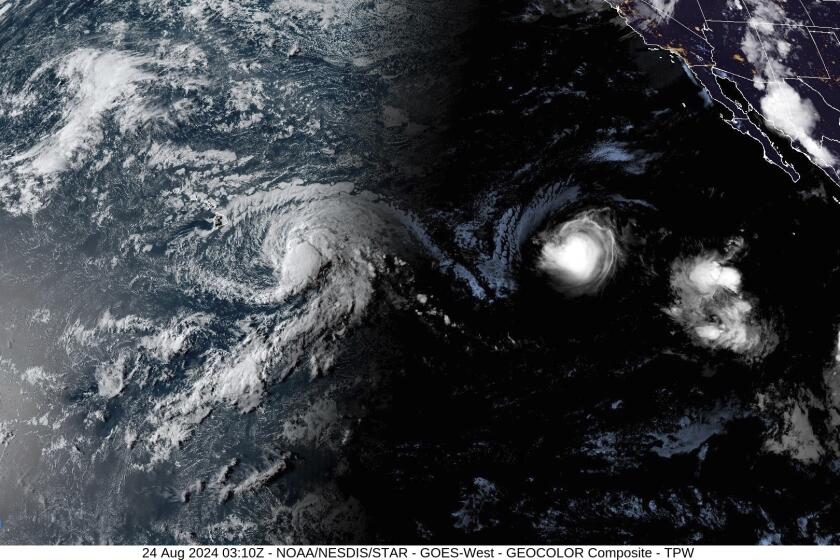New Drug Czar Aims to Spare This Generation : Ex-Gen. McCaffrey stresses both enforcement and prevention
Half of all American families know someone who has abused drugs, says Barry McCaffrey, President Clinton’s new federal drug czar. A retired general, McCaffrey likens this national enemy not to war but to cancer. He is taking his message across the country, to schools, university campuses, police stations and anywhere he has an audience willing to take on this national plague.
This menace will be perhaps the toughest battle ever for the general, who commanded the Army’s 24th Mechanized Infantry, which made quick work of dozens of Iraqi divisions during the Persian Gulf War. But this effort, he says, is far different from wars, which are won by violence and surprise, not by tending to the wounded.
This old soldier knows a thing or two about drug abuse, as does anyone who was in the military during the 1970s. The majority of those users have now walked away from drugs. To encourage this generation to do the same, McCaffrey is calling on Americans to tackle both supply and demand. The country can’t afford to simply choose either more law enforcement or more treatment and prevention. That’s a specious argument, the drug czar says. He believes in both, and he is right.
McCaffrey starts his pitch at youngsters, to prevent them from becoming the next generation of drug abusers. He takes aim at 10-year-olds. Keeping them off of cigarettes, he insists, will discourage them from using drugs.
The stereotypical drug user is young, black and poor, but McCaffrey point outs the majority of cocaine users are whites with jobs. The impact is greater in poor ghettoes, where drug abuse is closely linked to crime and violence, but the damage knows no boundaries.
The societal costs can be calculated in the delivery room with babies born addicted to cocaine; on the welfare rolls with children who can’t count on drug-addicted parents, and in foster care systems swollen with youngsters neglected or abused by drug-using parents.
The public health toll can be measured in the burden that drug use puts on emergency rooms.
The public safety burden can be quantified in the prisons and jails so crowded with drug-related offenders that wife batterers, drunk drivers and other criminals are allowed to leave jail early.
McCaffrey prescribes more intensive drug treatment in the prisons. That need is clear. The majority of inmates in California’s prisons tested positive for drugs after their arrests. Prison treatment has been effective in controlling drug abuse and reducing recidivism.
More treatment is needed on the streets too. The rapidly growing use of crack cocaine has left a growing gap there. McCaffrey also should call for more residential treatment. It works, but it costs. Society must somehow find a way to meet that cost.
McCaffrey is the nation’s fourth drug czar. He’s only been on the job a couple of months, and he doesn’t have all the answers. But he has forced a renewed national focus on a problem that won’t go away. That’s a decent start for the general, and more troops, in and out of government, can help him stem the tide.
More to Read
Sign up for Essential California
The most important California stories and recommendations in your inbox every morning.
You may occasionally receive promotional content from the Los Angeles Times.






